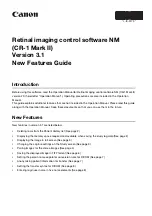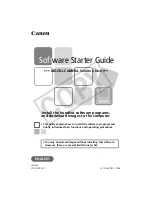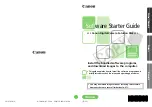
- 36 -
4.1.2
Module Overview
The MR100 kernel modules are outlined below.
•
Scheduler
Forms a task processing queue based on task priority and controls operation so that the high-priority task at the
beginning in that queue (task with small priority value) is executed.
•
Task Management Module
Exercises the management of various task states such as the RUNNING, READY, WAITING, and SUSPENDED
state.
•
Task Synchronization Module
Accomplishes inter-task synchronization by changing the task status from a different task.
•
Interrupt Management Module
Makes a return from the interrupt handler.
•
Time Management Module
Sets up the system timer used by the MR100 kernel and starts the user-created alarm handler
and cyclic han-
dler.
.
•
System Status Management Module
Gets the system status of MR100.
•
System Configuration Management Module
Reports the MR100 kernel version number or other information.
•
Synchronization and Communication Module
This is the function for synchronization and communication among the tasks. The following four functional mod-
ules are offered.
♦
Eventflag
Checks whether the flag controlled within the MR100 is set up and then determines whether or not to initi-
ate task execution. This results in accomplishing synchronization between tasks.
♦
Semaphore
Reads the semaphore counter value controlled within the MR100 and then determines whether or not to ini-
tiate task execution. This also results in accomplishing synchronization between tasks.
♦
Mailbox
Provides inter-task data communication by delivering the first data address.
♦
Data
queue
Performs 32-bit data communication between tasks.
•
Memory pool Management Module
Provides dynamic allocation or release of a memory area used by a task or a handler.
•
Extended Function Module
Outside the scope of µITRON 4.0 Specification , this function performs reset processing on objects and short data
queue function.
19
This handler actuates once only at preselected times.
20
This handler periodically actuates.
















































